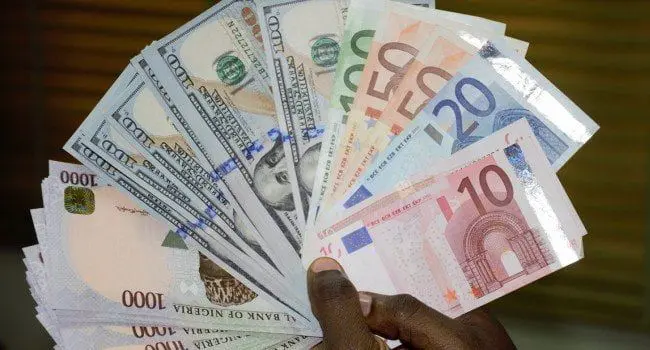
Aboki Naira to Dollar Black Market Exchange Rate Today, 26th September 2025
The Nigerian Naira showed marginal resilience against the US Dollar in the parallel market today, with Aboki operators – the informal currency traders commonly known as “Aboki” – quoting buying rates at ₦1,520 and selling rates at ₦1,525 per dollar.
This slight uptick from yesterday’s levels reflects cautious optimism among traders, despite broader economic challenges continuing to weigh on the currency.
Trending Now!!:
According to sources from Bureau De Change (BDC) operators in major cities such as Lagos, Abuja, and Port Harcourt, the black market rate remained stable around these figures throughout the trading day. The stability comes after a week of minor fluctuations, with the Naira trading between ₦1,515 and ₦1,545 against the greenback in recent sessions.
For context, this means exchanging $100 today would fetch approximately ₦152,500, a small improvement for Naira holders but still indicative of the currency’s ongoing depreciation trend since early 2024. The parallel market, often a barometer for street-level forex activity, typically trades at a premium over official rates.
While the Central Bank of Nigeria (CBN) maintains its investor and exporter window (NAFEX) rate closer to ₦1,502 per dollar, the black market premium underscores persistent dollar scarcity and demand from importers, travellers, and remittance recipients.
Analysts attribute today’s steadiness to recent CBN interventions, including the sale of dollars to BDCs at subsidized rates, which injected much-needed liquidity into the system earlier this month. “Traders are playing it safe,” said an anonymous BDC operator in Wuse Market, Abuja. “With global oil prices dipping and no major inflows, we’re not pushing for big swings. But if remittances slow further, we could see it creep up to ₦1,550 by next week.”
The Naira’s performance in the black market has broader implications for Nigeria’s economy, where over 70% of forex transactions occur informally. Imports of essentials, such as rice, fuel, and pharmaceuticals, remain vulnerable to these rates, fueling inflation that reached 34.2% in August.
Economists warn that without sustained foreign reserves – currently hovering around $35 billion – the Naira could face renewed pressure heading into the holiday season. On a positive note, some market watchers point to potential relief from diaspora remittances, which topped $20 billion last year, and ongoing World Bank-backed reforms.
However, political uncertainties, including upcoming budget debates, could introduce volatility. For those engaging in forex trades, experts advise caution: Verify rates with multiple sources, avoid large transactions in one go, and steer clear of unregulated dealers to mitigate scam risks.
As always, the Aboki market evolves rapidly – check live updates from trusted platforms for the latest. This report is based on aggregated data from parallel market sources. Rates are subject to intraday changes.




